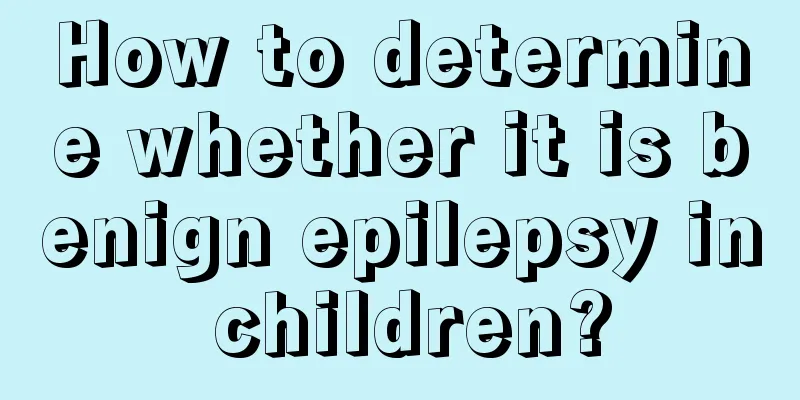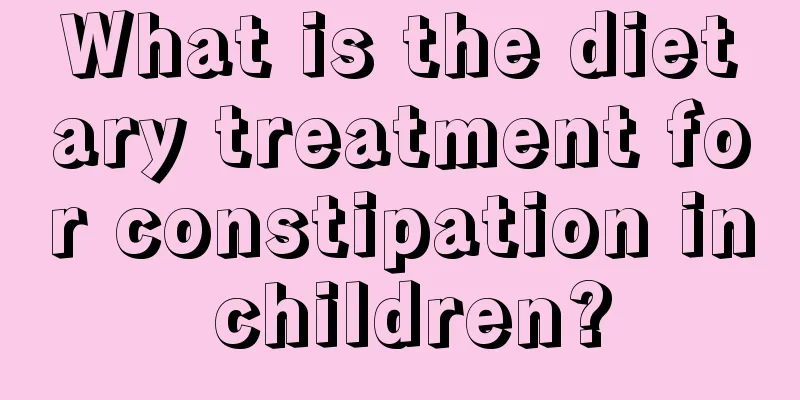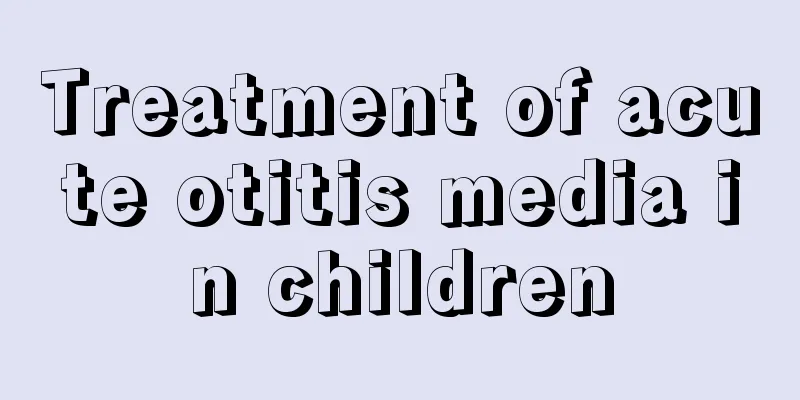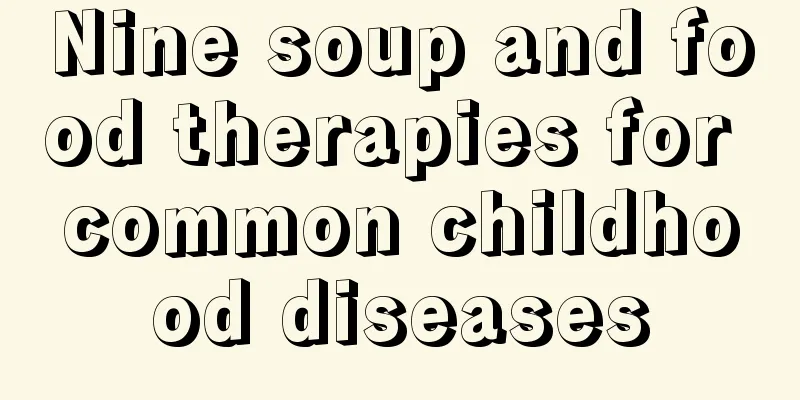How to determine whether it is benign epilepsy in children?

|
Parents are very worried about their children's health, especially when their children suffer from various genetic diseases. For example, epilepsy is a genetic disease that poses a great threat to people's health. There are many types of epilepsy, and benign epilepsy is one of the easier types to control and treat. Let's take a look at how to determine whether it is benign epilepsy in children? I hope everyone can understand it. Epilepsy is a disease in which sudden abnormal and repeated discharges of neurons lead to brain dysfunction. Epilepsy can cause sudden loss of consciousness, rigidity of the limbs, clenched jaws, muscle twitches, foaming at the mouth, and incontinence. Epilepsy is divided into minor seizures, major seizures, and localized seizures.Symptoms of benign epilepsy in children 1. Benign affective epilepsy in children: The disease starts at the age of 3 to 10 years old. The attacks are mainly characterized by emotional symptoms such as panic and shouting. There may be automatic symptoms such as chewing and swallowing. There is no loss of consciousness. The attacks stop before the age of 15. 2. Atypical benign partial epilepsy in children: the onset age is 2 to 6 years old. The nervous system develops normally before and after the onset of the disease, and the seizure forms include partial motor seizures during sleep or waking up in the early morning, absences, transient atonia and myoclonus.3. Benign familial neonatal epilepsy: It is a familial disease, which usually starts within 2 to 3 days to several weeks. Some individuals may have frequent seizures 3 months after birth. The seizures are partial or systemic, manifested as clonic, tonic convulsions or respiratory apnea. 4. Benign juvenile myoclonic epilepsy: It occurs in adolescence and has a genetic tendency. The seizures are manifested as myoclonic twitches of the limbs. They often occur in the morning when waking up or after a nap. They occur spontaneously and frequently, especially when tired. They disappear during sleep and there is no consciousness disorder. They can be induced by sound, light, and sleep deprivation. The prognosis is good.5. Benign toric epilepsy in children: It starts in late childhood or adolescence. 25% of patients have a family history of epilepsy. Seizures often occur when waking up from sleep, with the eyes, head, or trunk turning to one side. Sometimes it expands to a generalized seizure lasting 5 to 15 seconds, and may sometimes be accompanied by other seizures. |
<<: How to remove baby's tongue coating?
>>: The child has not had a bowel movement for three days
Recommend
One-year-old baby's brain development
The intellectual development of a one-year-old ba...
Nutritious breakfast recipes for junior high school students
Although the pressure on junior high school stude...
The dangers of drinking cups
A training cup is a cup used to train children to...
What are the symptoms of vitamin D deficiency in children?
Every child is a treasure of his or her parents. ...
Is it right to drink apple water when the baby is constipated?
Constipation is a common disease. Not only adults...
How to make baby noodles
We all know that the baby's diet is of vital ...
What's wrong with the blisters on my child's hands?
Children's skin is always soft and smooth, ma...
Can baby milk powder be eaten with eggs?
In daily life, eggs are an indispensable food for...
At what age is it better for children to wear underwear?
When children reach a certain age, parents should...
Symptoms and treatment of tonsil suppuration in children
For children's tonsil suppuration, the sympto...
What are the symptoms of a concussion in children? Parents need to know this knowledge
Children love to play and are prone to falling. I...
What to do if your child has a fever and a flushed face
I wonder if parents have noticed that during the ...
What to do if your child has pockmarks on his face
In fact, generally speaking, children will not ge...
The impact of precocious puberty on children
The incidence of precocious puberty in children i...
Why do children get metabolic diseases?
If our body's metabolic function is abnormal,...









